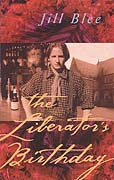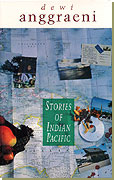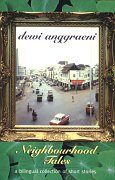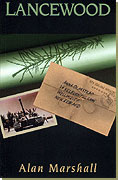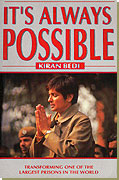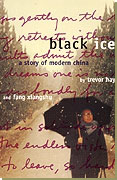When Dining With Tigers: Roads to Tiananmen
Wednesday, September 12th, 2007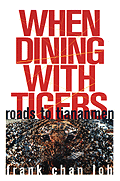 When Dining with Tigers is a fictional account of a young Chinese English teacher, nicknamed Moby, and his older Australian friend, retired journalist, Wilson. Their story begins in Sydney in 1986, when Moby is billetted at Wilson’s house, and ends in Beijing in the aftermath of the Tiananmen Square massacre.
When Dining with Tigers is a fictional account of a young Chinese English teacher, nicknamed Moby, and his older Australian friend, retired journalist, Wilson. Their story begins in Sydney in 1986, when Moby is billetted at Wilson’s house, and ends in Beijing in the aftermath of the Tiananmen Square massacre.
Moby’s understanding of the Australian, and particularly the Chinese-Australian, way of life slowly develops during his year in Sydney, refining his skills as an English teacher. His own family life in Beijing is presented by way of letters from his wife, who anxiously awaits the birth of her brother’s first child. Her fears of how her brother would react if the child is a girl, become a reality. The personal tragedies caused by the one-child policy make a disconcerting continuity with the family tragedies resultant from the Cultural Revolution.
Interwoven into their adventures and misadventures in Sydney and Beijing are analysis and commentary provided by the 16th century Chinese scholar, Wu Cheng-en and the heroes of his epic Journey to the West. Scholar Wu, who is cast as the narrator of Tigers, uses classical Chinese folk stories and legends to illustrate moral principles and cultural behaviours which are challenged by the circumstances in which Moby and Wilson find themselves. Wu Cheng-en’s heroes – the priest Tripitaka and his companions – argue the merits of how Moby, Wilson and the people among whom they live and work in Sydney and Beijing live out their roles.
Tigers takes the reader from mild street demonstrations in mid-80s Sydney, campaigning against the Australia Card, to the enormity of the demonstrations for liberalisation which culminated in Tiananmen Square on 4 June 1989. The familiar images of Tiananmen Square are recounted verbally, including what is probably the best written account of the young man confronting and stopping the tank, an image which still brings hope to oppressed peoples the world over.
215 x 138 mm Paperback, 376pp
Fiction; 1st Edition
ISBN 0 9585805 2 9
RRP $aud$22-95
ISBN(13) 978 0958580526
The Author
Frank Chan Loh was born in Malaysia, and migrated to Australia, already an acknowledged playwright. His radio plays have been performed on Radio Malaysia, and he has won short story competitions in England. When Dining With Tigers is Frank’s first novel.
Frank, who has an arts degree from the University of Queensland, lives in Sydney with his wife and their two sons. Frank has worked as a waiter and kitchen hand, a wine seller, a factory hand and recently retired from his role as a mathematics teacher. His broad knowledge of Chinese literature and tradition is complemented by his broad reading of Australian and international literature.
Frank, one of the male minority of Asian-Australian writers, has a unique style which reflects his interest in the difference between China and Australia in interpretation of family, nation and personal life.
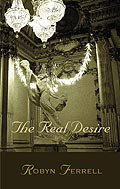 The Real Desire is a collection of essays, written over the last ten years by Robyn Ferrell, who is now Associate Professor of Philosophy at the University of Melbourne. This collection is for the general reader as well as the academic and student.
The Real Desire is a collection of essays, written over the last ten years by Robyn Ferrell, who is now Associate Professor of Philosophy at the University of Melbourne. This collection is for the general reader as well as the academic and student.